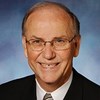The election of national leaders brings forth feelings of anxiety and expectancy. Yet, change often carries a glimmer of hope, even in the minds of hardened realists or confirmed skeptics.
Somehow, coming off a season of defeats, a football team retains a spark of optimism that its first game can be won. Similarly, we often feel a new year will be better than the last—or a new can of coffee offers a better aroma. It may even be possible that a new President will be better than the last one. Americans are harsh judges of political figures. ‘Our feelings are a curious mixture of high hopes and not-so-high expectations. We hope for a return to personal initiative and responsibility, but we expect a continuation of current welfare state policies. We hope for a return to reason and logic in meeting problems of natural resources and economic policy, but we expect that special interest groups will continue to hold sway. Thus, we are frequently the schizophrenic victims of hope and despair. Many of us had parents who said to us in some way as we prepared to leave home: “Remember who you are.” And I want to suggest that here: Remember who you are. Free people have been characterized throughout history by initiative, courage, independence, and compassion—all of which contribute to a better quality of life. Traditionally, free people ask only for an opportunity. Elected officials in America once were seen as people of character, integrity, principles, and good judgment—chosen to protect the interests of all the people. It was understood that special interest issues were not to be settled by governmental intervention, but through peaceful interactions in the market. We need leaders who will help us understand that if we try to advance our vested, selfish interests through political means, we will restrict our own freedom, as well as that of our fel-lowmen. Edmund Burke once said: “The great difference between the real statesman and the pretender is that one sees into the future, while the other regards only the present; the one lives by the day, and acts on expediency; the other acts on enduring principles and for immortality.” If there were fewer calls for expediency and political intervention, there would be far less of the same. Much of the regulation which we find so offensive is brought on by the abuse of influence and by special request. Group after group is organized to secure more money or advantage through government intervention. In his address urging adoption of the United States Constitution, Benjamin Franklin stated: “. . . I cannot help expressing a wish that every member . . . would doubt a little of his own infallibility.” Let us ask our officials to recall their own fallibility. Let us ask them to remember that the constitutional purposes of government pertain to the protection of life, liberty, and property, and to leave our personal and social problems to individual and community initiatives. Whether one’s perspective is optimistic or pessimistic, we should note with Emerson that “This time, like all times, is a very good one, if we but know what to do with it.” Let us use it well!
—Bruce M. Evans
President
Civilization
The Declaration of Independence lists “the pursuit of happiness” as among the most fundamental of rights. In this the framers were realists, rather than moralists.
Civilization has greatly advanced in material wealth and its intellectual underpinnings: steadily, clearly, and progressively the standard of living has risen and the proportion of total output devoted to life’s necessities has fallen. Indeed, in many cases, today’s understanding of a necessity was yesterday’s understanding of a luxury.
Moralists may prefer to think of civilization as progress in “the pursuit of virtue,” hut evidence for this is scanty. Violence, coercion, and fraud flourish everywhere, even in the most “civilized” and “advanced” countries. Nor are crimes and sins of man against man less abundant now than in yesteryear.
“Civilized,” literally, means “fit for life in cities.” And indeed it is the cities that are most vibrant economically and intellectually, centers of commerce and know-how, filled with trade and economic and intellectual specialization and cooperation. As Jefferson described the “march of civilization”—“like a cloud of light, increasing our knowledge and improving our condition.”
But as Jefferson so often predicted, cities are also among the places least given to virtue and most given to vice, with violence done to persons and property everywhere in sight.
What does this mean to those of us devoted to the freedom philosophy? It means that while the pursuit of happiness, and the economic and intellectual progress that makes it possible, are aided greatly by the cooperation, competition, and specialization of the marketplace, the pursuit of virtue is intrinsically a matter of individual effort dedicated to self-improvement. This the Founders understood.
—Joseph S. Fulda

